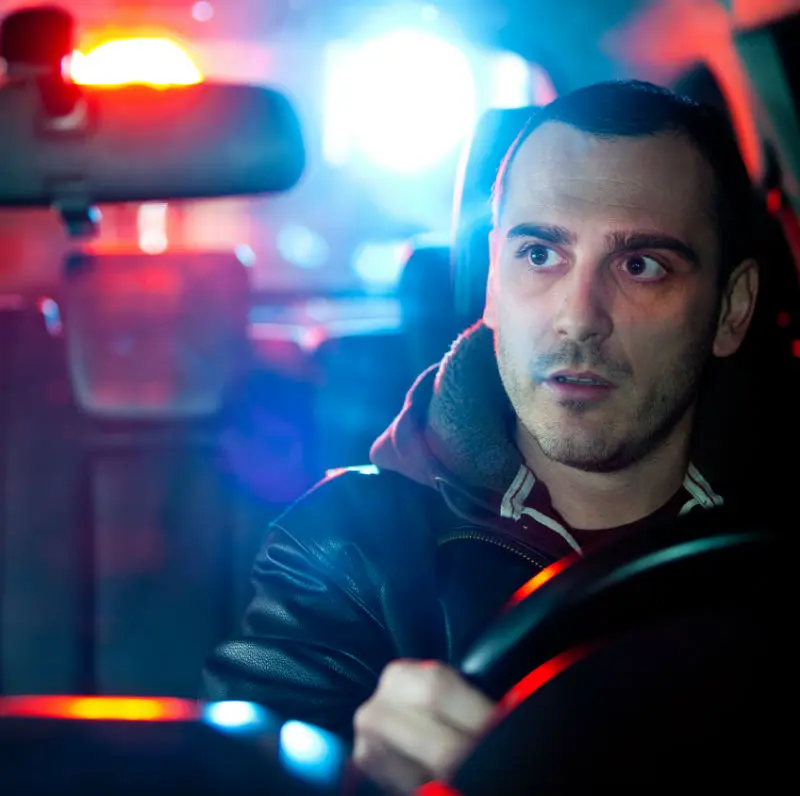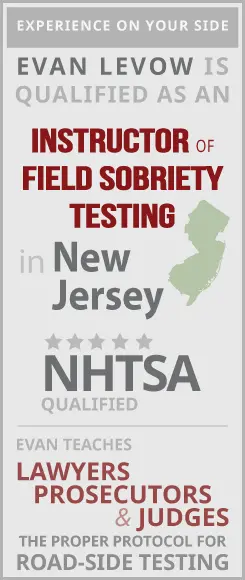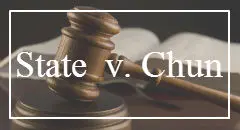NJSA 2C:40-26, also known as “Operating Motor Vehicle During Period Of License Suspension, Fourth Degree Crime,” is a New Jersey DWI law that can come with surprisingly harsh penalties.
Understanding this law and the associated penalties is important for drivers who have had their licenses suspended due to a second or subsequent DWI violation, or who were charged with refusing to submit to mandatory chemical tests two or more times.
Additionally, this law is relevant for individuals who were previously convicted of driving with a suspended license during a period of time when their license was suspended for a DWI-related charge, including a chemical breath test refusal.
N.J.S.A. 2C:40-26 Operating Motor Vehicle During Period Of License Suspension, Fourth Degree Crime.
NJSA 2C:40-26 was put into effect on August 1st, 2011, and pertains to drivers in New Jersey who operate a motor vehicle during a period of license suspension stemming from previous DWI-related charges.
The full statute of NJSA 2C:40-26 is shown below (in italics) along with short descriptions of each subsection (in normal lettering) below:
NJSA 2C:40-26(1a)
It shall be a crime of the fourth degree to operate a motor vehicle during the period of license suspension in violation of R.S.39:3-40, if the actor’s license was suspended or revoked for a first violation of R.S.39:4-50 or section 2 of P.L.1981, c.512 (C.39:4-50.4a) and the actor had previously been convicted of violating R.S.39:3-40 while under suspension for that first offense. A person convicted of an offense under this subsection shall be sentenced by the court to a term of imprisonment.
In other words, subsection (1a) of NJSA 2C:40-26 says that it is a fourth degree crime to drive with a suspended license if your driver’s license was suspended for either a DWI-related charge or for refusing to submit to a chemical test and you were previously convicted of driving with a suspended license while it was suspended for one of the two previously mentioned charges.
NJSA 2C:40-26(1b)
It shall be a crime of the fourth degree to operate a motor vehicle during the period of license suspension in violation of R.S.39:3-40, if the actor’s license was suspended or revoked for a second or subsequent violation of R.S.39:4-50 or section 2 of P.L.1981, c.512 (C.39:4-50.4a). A person convicted of an offense under this subsection shall be sentenced by the court to a term of imprisonment.
Subsection (1b) of NJSA 2C:40-26 states that it is also a fourth degree crime to drive with a suspended license if your license was suspended for a second or subsequent DWI violation. Similarly, it is a crime of the fourth degree to drive with a suspended license if your license was suspended because you refused to submit to mandatory chemical tests under New Jersey’s implied consent laws two or more times.
NJSA 2C:40-26(1c)
Notwithstanding the term of imprisonment provided under N.J.S.2C:43-6 and the provisions of subsection e. of N.J.S.2C:44-1, if a person is convicted of a crime under this section the sentence imposed shall include a fixed minimum sentence of not less than 180 days during which the defendant shall not be eligible for parole.
Penalties For A Conviction Under NJSA 2C:40-26
Those convicted under NJSA 2C:40-26 Operating Motor Vehicle During Period Of License Suspension, Fourth Degree Crime face harsh penalties, including a mandatory minimum punishment that involves a one year license suspension and 180 days in jail with no parole eligibility.
These penalties are much more severe than the penalties faced by drivers whose licenses were suspended for other traffic-related violations.
What If I My Previous DWI Arrest (Or Arrests) Occurred Out-of-state?
Technically, NJSA 2C:40-26 only states that it is a crime to drive under a suspended license stemming from a second violation of R.S.39:4-50 (Driving While Intoxicated) or C.39:4-50.4a (Refusal to Submit to Breath Test), both of which are specific to the State of New Jersey.
This then raises the question of whether or not out-of-state violations count towards the two DUI-related violations required to make one eligible for prosecution under NJSA 2C:40-26 in the State of New Jersey.
It is important to know that NJSA 2C:40-26 applies to New Jersey drivers whose licenses were suspended for a second DWI-related violation regardless of where the prior violations occurred.
For example, a driver whose license is suspended as a result of a second DWI conviction is eligible for prosecution under NJSA 2C:40-26 even if one of the driver’s two previous DWI-related convictions occurred out-of-state.
This was recently confirmed in a ruling by the New Jersey Appellate Court in which the court found that that an out-of-state DWI conviction applied to the two violations necessary to prosecute an individual under NJSA 2C:40-26.



